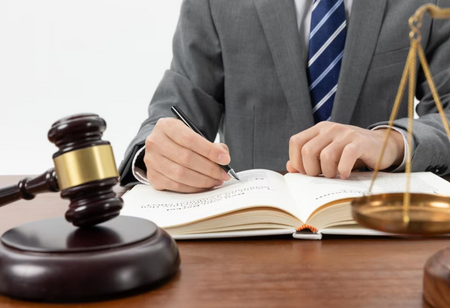Investors of OpenAI May Take Legal Actions Against the Board for Sam Altman’s Firing
By Consultants Review Team
 According to Reuters, investors in OpenAI, the parent company of the generative artificial intelligence program ChatGPT, are exploring legal action against the business's board following the resignation of CEO Sam Altman. According to the news agency, OpenAI's investors are concerned about a mass departure of personnel following Altman's dismissal. Notably, more than 500 of the company's 700 employees had threatened to quit if Altman was not restored.
According to Reuters, investors in OpenAI, the parent company of the generative artificial intelligence program ChatGPT, are exploring legal action against the business's board following the resignation of CEO Sam Altman. According to the news agency, OpenAI's investors are concerned about a mass departure of personnel following Altman's dismissal. Notably, more than 500 of the company's 700 employees had threatened to quit if Altman was not restored.
Legal Considerations
According to Reuters, investors are meeting with legal counsel to evaluate their alternatives. However, it is unclear whether any legal action would be taken against OpenAI.
Most investors are concerned that their considerable investments in OpenAI would be lost if the startup fails following Altman's unceremonious exit. According to the survey, OpenAI is the "crown jewel" in many of these investors' portfolios as a leader in its area, and the approaching uncertainty is making them uneasy. According to the report, OpenAI did not react to queries.
The Organizational Structure of OpenAI
According to a Reuters story using Semafor statistics, Microsoft owns 49 percent of OpenAI's for-profit subsidiary, followed by employees and stakeholders who control another 49 percent, and the remaining 2 percent is with OpenAI's non-profit parent.
According to an internal memo acquired by Reuters, Altman was fired by OpenAI's board due to a breakdown in communication. Following that, the majority of OpenAI's personnel, numbering over 700 people, threatened to resign unless the board was removed. Because of its ownership structure, OpenAI is controlled by its non-profit parent, which is unlike a normal venture capital (VC) supported company. According to legal experts, the non-profit prioritizes humanitarian concerns over mere investor interests, and hence employees, not investors, may retain the most weight on the board.
Legal Recourse Obstacles
Legal experts also believe that, while nonprofit boards have obligations, they also have a lot of leeway in making leadership decisions. OpenAI's corporate structure, which employs a limited liability company as its operating body, may further shield the nonprofit's directors from investor actions, limiting legal remedies.
Even if investors go to court, analysts warn that their case may be weak. Companies often have a great deal of leeway in making commercial decisions, even if the results are unfavorable. This adaptability was demonstrated by Apple's sacking of Steve Jobs in the past, only to reappoint him subsequently. Despite their fears and potential losses, investors may have an uphill road in pursuing legal remedies, given OpenAI's unusual governance structure and legal freedom.
Is There Any Solace in Sight?
In a series of tweets, Sam Altman conveyed a message of unity and dedication to OpenAI's ongoing activities and cooperation with Microsoft. Despite substantial leadership moves, Altman's tweets indicate an unwavering commitment to the organization's goal anensured partnership with the tech behemoth.
Altman emphasized the common priority of himself and Microsoft CEO Satya Nadella to assure OpenAI's flourishing future in one of the tweets. "We are committed to ensuring complete operational continuity for our partners and customers." "The OpenAI/Microsoft collaboration makes this very feasible," he added. Altman's tweets created a positive picture of collaboration and shared aims. The message of unity arrives at an important juncture in the company's leadership restructure.




